Did you know that nearly 60% of people struggle with scalp health issues —often before they even notice problems with their hair? While we lavish attention on our strands, the true secret to thick, resilient, gorgeous hair lies just beneath the surface. In this guide, you’ll uncover the science behind scalp care, learn how to spot and fix unhealthy scalp conditions, and see firsthand how transforming your scalp can unlock your hair’s full potential. Ready to nurture your roots for real hair growth? Let’s reveal the hidden key to vibrant, healthy hair!
- Discover the vital link between scalp health and hair growth
- Identify and address common scalp conditions like seborrheic dermatitis and dandruff
- Get step-by-step scalp care routines for a healthier scalp and hair
- Find expert-backed tips to prevent hair loss and rejuvenate your hair follicles
- Explore answers to the top questions about scalp and hair health
Why Scalp Health is the Foundation for Healthy Hair Growth
When it comes to hair growth and keeping every strand at its healthiest, a well-cared-for scalp is a non-negotiable foundation. Studies show that scalp health deeply influences everything from strand strength to hair density, with nearly 60% of people experiencing scalp issues that silently impact their hair’s potential. Common signs—like flaking, soreness, or dryness—might seem minor but can point to underlying issues stalling your hair’s natural cycle.
- Nearly 60% of people experience scalp issues that impact hair growth and overall healthy hair.
- A neglected scalp can be the root cause of hair loss, lackluster strands, and slow hair grow cycles.
Regularly ignoring your scalp can result in premature hair loss, slow growth cycles, and strands that lack shine and bounce. The scalp is where every hair follicle originates, and its condition directly affects the ability of your hair to grow strong and full. By prioritizing scalp care , you’re setting the stage for your hair’s best possible health and appearance.
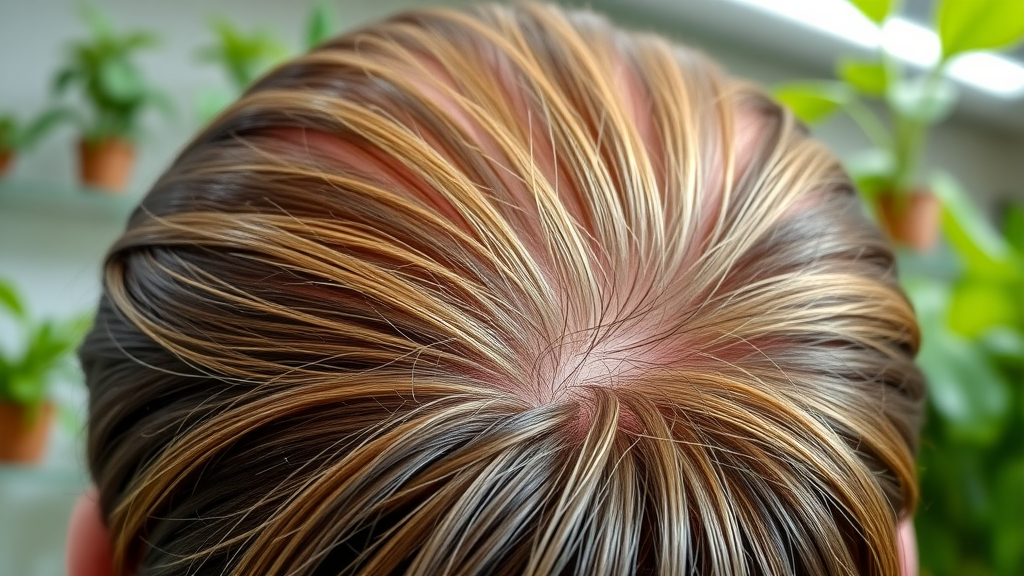
Unlocking the Science Behind Scalp Health and Hair Follicle Vitality
The Relationship Between Scalp Condition, Hair Follicles, and Hair Growth
At the very root (literally!) of your hair grow journey is the crucial relationship between the scalp condition , the hair follicle , and actual hair growth. Your scalp contains thousands of tiny hair follicles , each acting as a nurturing environment for new hair. When the scalp is balanced and cared for, the follicles can efficiently grow hair that progresses through healthy growth cycles and matures without disruption.
Problems arise when dead skin cells, inflammation, or buildup disrupt this harmony. Follicle miniaturization or blockage can quickly lead to thinning hair and even permanent loss if left unchecked. A healthy scalp ensures proper blood flow and nutrient delivery to hair follicles—and that’s the very essence of vibrant hair and scalp health.

How Scalp Health Drives Hair and Scalp Balance
The delicate balance of your scalp and hair ecosystem is affected by everything from your shampoo choices to environmental exposure. A healthy scalp isn’t just clean—it maintains the right levels of oils, pH, and healthy skin cells to keep hair follicles protected yet open for growth. When balance tips—due to harsh products, unaddressed skin conditions, or environmental triggers—the scalp can become inflamed or overly oily, leading to dandruff or even chronic hair loss.
"A healthy scalp is the soil from which strong hair grows. Without the right environment, beautiful hair is simply not possible." – Trichology Association
Proper scalp care means supporting this natural balance with appropriate cleansing, gentle exfoliation, and regular self-checks for any symptoms of irritation. Doing so not only reduces the risk of common scalp conditions , but powers up your hair’s natural growth potential from the roots out.
The Most Common Scalp Conditions Impacting Scalp Health
Understanding Seborrheic Dermatitis and Its Effect on Healthy Hair
Seborrheic dermatitis is one of the most persistent and challenging scalp conditions affecting millions. It's recognized by red, inflamed patches and greasy, yellowish scales lining the scalp. Beyond causing discomfort, this condition interferes with healthy hair growth by triggering an overproduction of sebum and encouraging a buildup of dead skin, which ultimately blocks hair follicles.
Without the right management, seborrheic dermatitis accelerates hair loss and contributes to a lackluster appearance. Treating it requires more than just strong shampoos—you need a dual approach, targeting both the underlying inflammation and supporting normal scalp microbiome with the right scalp care products.
Atopic Dermatitis: A Barrier to Optimal Scalp Care
Another common culprit, atopic dermatitis (commonly called eczema), weakens the scalp’s barrier. For those with sensitive skin conditions or allergies, it leads to chronic itching, irritation, and scaling. The constant scratching not only irritates but can also damage the hair follicles, stifling both healthy hair growth and scalp comfort.
Managing atopic dermatitis means using dermatologist-recommended gentle products, keeping scalp hydration in check, and minimizing triggers such as harsh detergents or extreme temperatures. Effective hair care routines for those with atopic dermatitis often include fragrance-free shampoos and leave-in scalp treatments to support both the skin and the follicles underneath.
Other Common Scalp Conditions: Psoriasis, Folliculitis, and Dandruff
Besides dermatitis, other conditions like psoriasis, folliculitis, and dandruff also play a significant role in scalp health. Psoriasis is an immune condition leading to thick, silver scales, while folliculitis refers to inflammation or infection of hair follicles and can cause painful red bumps or pimples. Dandruff, though not always severe, is a tell-tale sign of scalp imbalance—often due to an overgrowth of yeast or poor product choices.
Left untreated, these scalp conditions can result in chronic hair loss, delayed hair growth, and visible scalp irritation. Building a routine that tackles these issues at their root—through targeted care products and lifestyle adjustments—is key to restoring balance and comfort. Always consult a certified dermatologist if over-the-counter remedies aren't making a difference.
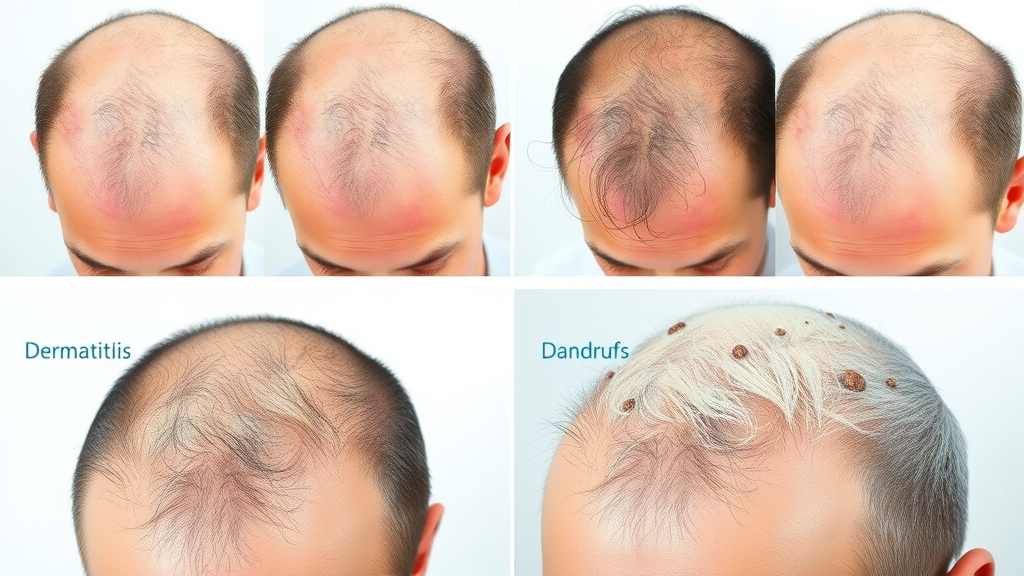
Spotting an Unhealthy Scalp: Signs, Symptoms, and Causes
How Do You Tell If Your Scalp Is Unhealthy?
Spotting the warning signs of an unhealthy scalp early is crucial for preventing further hair loss and other complications. Persistent flaking, itching, redness, and a tight or burning sensation are often overlooked but can indicate underlying scalp condition imbalances. Even seemingly minor issues like dull hair or slower growth might signal that your foundation isn’t as strong as it should be.
If you’re experiencing excess hair loss —more than the usual daily shed—it may be your scalp’s plea for better scalp care . Paying close attention to your scalp’s texture, hydration, and response to products makes it easier to take effective action and restore its healthy balance.
What Causes Unhealthy Scalp and What Triggers Scalp Condition Imbalances?
The causes of an unhealthy scalp can be complex. Genetics play a role for some, but environmental factors (like pollution or weather), lifestyle (such as stress and diet), and your care routine are often just as influential. Overwashing, using the wrong hair care products , and exposure to harsh chemicals can strip the scalp of natural oils, leaving it either too dry or too oily.
Even common care products designed for your hair type can trigger irritation if they contain allergens or are not properly rinsed away, leading to buildup and inflammation. Balanced hair and scalp care means looking honestly at the whole picture and making consistent, supportive changes.
| Symptom | Unhealthy Scalp | Healthy Scalp |
|---|---|---|
| Flaking | Frequent | Rare |
| Redness/Inflammation | Common | Uncommon |
| Hair Loss | Accelerated | Minimal |
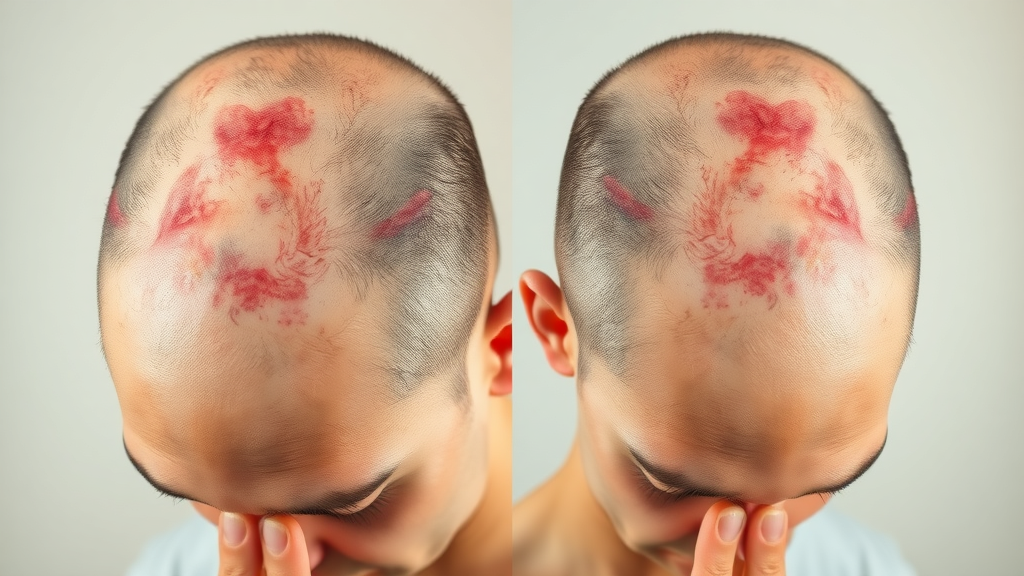
How To Improve Your Scalp Health for Beautiful, Healthy Hair
How Do I Improve My Scalp Health?
Improving scalp health starts with a gentle daily care routine . Use a mild, sulfate-free shampoo appropriate for your hair type to keep the scalp clean without stripping it. Incorporate weekly exfoliation—using either a scalp scrub or a soft brush—to remove dead skin and prevent buildup. Always choose dermatologically recommended hair care products that address your specific scalp needs, whether dryness, sensitivity, or oiliness.
Daily gentle cleansing, targeted scalp care routines, and the use of dermatologically recommended hair care products play a pivotal role in maintaining a healthy follicular environment. Don’t neglect the power of regular scalp massages—they increase blood flow to your hair follicles, encouraging stronger and faster hair growth.
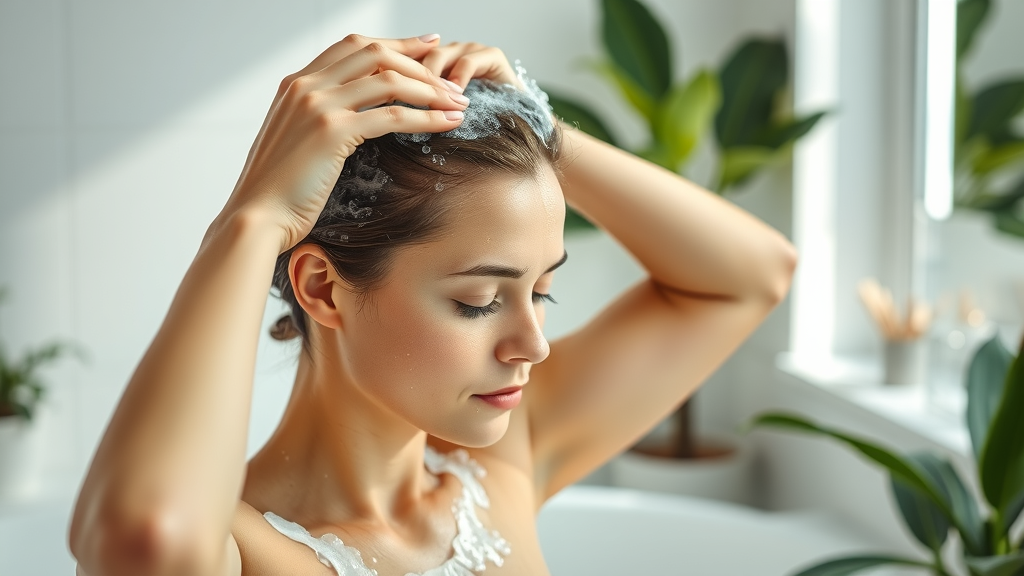
How Do I Reset My Scalp Health?
Sometimes, a reset is necessary to break free from cycles of irritation or buildup. Begin by eliminating harsh chemicals and products packed with strong fragrances or alcohols, as these can aggravate sensitive skin and disturb oil balance. Replace with nourishing treatments such as scalp oils with tea tree or peppermint, and use a clarifying shampoo once every week to detox the scalp.
Tips on detox routines, avoiding harsh chemicals, and introducing scalp-nourishing treatments are essential for renewing the scalp’s protective barrier. Improving your scalp’s condition may take a few weeks, but with diligent care—even simple changes like washing less frequently or switching to a silk pillowcase can make a big difference.
- Regular deep cleansing
- Weekly scalp exfoliation
- Balanced diet for hair health
- Minimizing heat styling
- Scalp massage
- Using sulfate-free hair care products
- Managing stress
Product Guide: Choosing The Right Hair Care and Scalp Care Products for Optimal Scalp Health
Selecting the right hair care products is critical for scalp success. Look for ingredients such as salicylic acid, zinc pyrithione, or natural oils for specific conditions. Choose pH-balanced, sulfate-free shampoos and avoid anything that leaves a sticky residue, as product buildup is a leading cause of scalp congestion.
Consider also adding a targeted scalp serum for hydration or scalp oils containing rosemary or peppermint for their stimulating and antimicrobial properties. Remember, your scalp and hair will only thrive if you tailor your care routine and products to their unique needs—not just the latest trend or marketing claim!
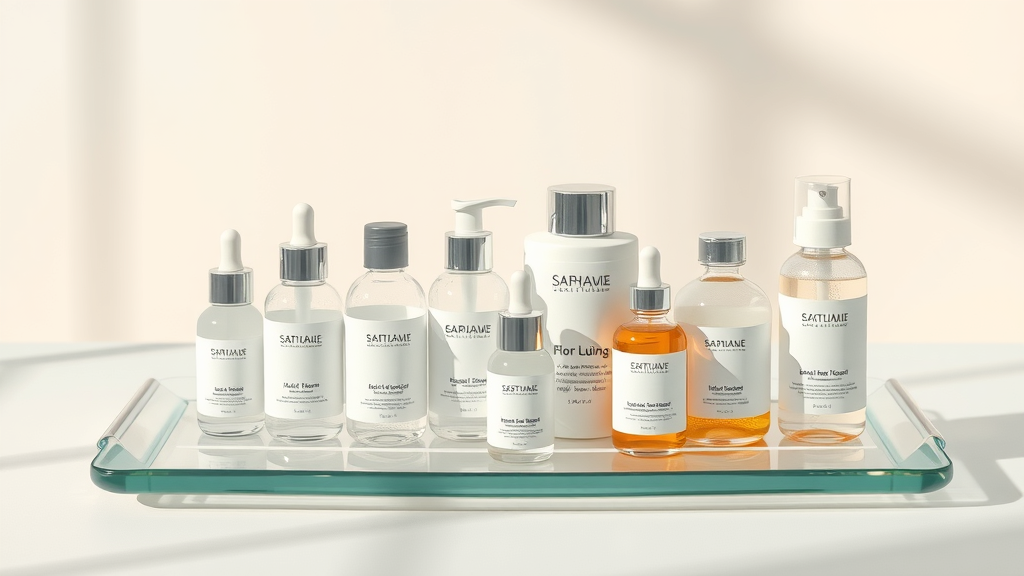
The Link Between Scalp Health, Hair Loss, and Hair Growth Success
Boosting Hair Growth: How a Healthy Scalp Directly Supports Hair Follicle Renewal
The connection between scalp health and hair growth is direct and powerful. Healthy follicles are prime for consistent hair regrowth; a distressed or congested scalp, meanwhile, drastically reduces the number of active follicles. Keeping the scalp clean, hydrated, and in balance boosts renewal and improves hair density across all hair types .
Incorporating frequent scalp massages and a diet rich in vitamins and antioxidants can aid in both repairing and preventing damage to the follicular base. Focus on habits—like gentle exfoliation and managing stress—that nurture the scalp, and you’ll see real differences not only in hair loss reduction but in the shine, thickness, and quality of your strands.
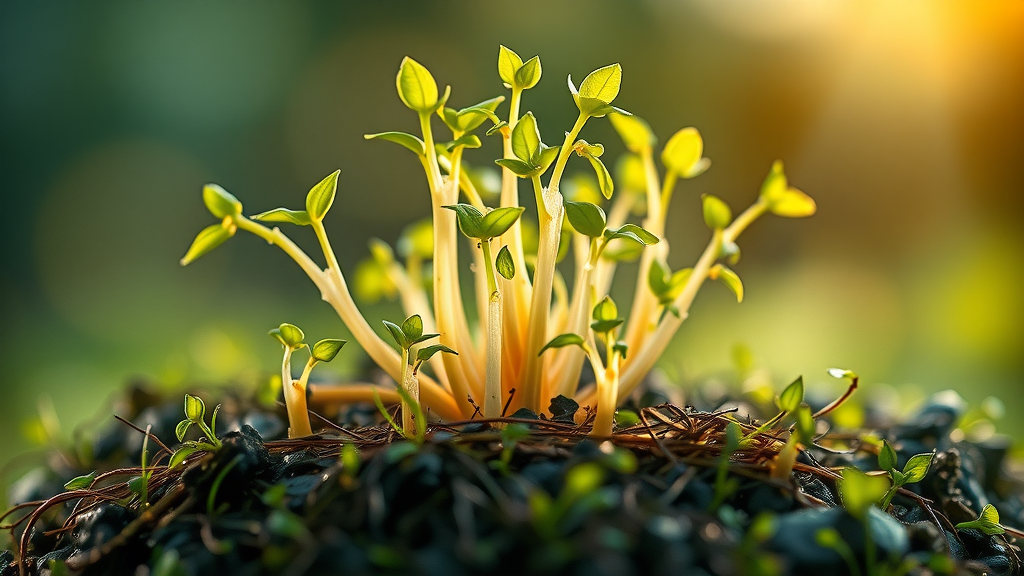
Can Scalp Health Reverse Hair Loss and Help Hair Grow Back?
While not all cases of hair loss are reversible, numerous studies confirm that optimizing scalp health creates a stimulating, nourishing environment that can encourage hair regrowth, especially for non-scarring forms of hair thinning. Improved blood flow, reduced inflammation, and open follicles combine to promote new, stronger hair.
Discuss scientific studies and the impact of improved follicular environment on hair regrowth. Commitment to a science-backed care routine , supported by a trusted dermatologist , is often the difference between ongoing loss and robust, beautiful hair.
"You cannot have healthy hair without first having a healthy scalp." – Leading Dermatologist
Advanced Tips for Maintaining Scalp Health and Preventing Scalp Conditions
- Integrating antimicrobial oils
- Importance of pH-balanced shampoos
- Identifying symptom changes in scalp and hair
Advanced scalp care involves getting proactive long before visible symptoms appear. Integrate a few drops of antimicrobial oils like tea tree or neem into your weekly deep cleanse, and choose only pH-balanced shampoos that restore rather than strip your scalp. Stay alert for subtle changes—such as increased shedding, gritty texture, or sudden oiliness—and adjust routines or consult a certified dermatologist at the first sign of persistent symptoms.
Prevention is always more effective than cure. By nourishing your scalp, you not only prevent common scalp conditions —like seborrheic dermatitis or atopic dermatitis —but also support steady, long-term hair growth and overall hair health .
People Also Ask: Key Scalp Health Questions Answered
How do I improve my scalp health?
Consistent gentle cleansing, regular exfoliation, balanced nutrition, and protective hair care practices form the foundation for optimal scalp health. Make sure to choose products for your specific scalp needs, use a soft scalp brush or paddle, and avoid harsh chemicals or excessive heat styling that can strip your scalp of essential oils. Regular self-checks help you identify any changes early.
How do you tell if your scalp is unhealthy?
Frequent flaking, redness, itching, discomfort, and accelerated hair loss are classic indicators of poor scalp health. If your scalp feels persistently tight or looks inflamed, or if your hair appears thin and brittle, it’s time to review your hair and scalp care strategies and consult a specialist if needed.
How do I reset my scalp health?
A ‘reset’ involves clarifying routines, eliminating harsh products, and nourishing your scalp barrier. Switch to a gentle, fragrance-free shampoo, exfoliate weekly with a non-abrasive scrub, and replenish hydration with lightweight oils or serums. A temporary break from styling products also aids in restoring balance.
What causes unhealthy scalp?
Overwashing, product buildup, hormonal fluctuations, poor nutrition, unmanaged stress, and underlying scalp conditions can all lead to poor scalp health. Limiting exposure to harsh ingredients, eating a diet rich in vitamins, and regularly monitoring your scalp’s feel and look can help you maintain a healthy foundation.
Your Step-by-Step Action Plan for Achieving and Maintaining Optimal Scalp Health
- Evaluate current scalp and hair condition
- Choose suitable scalp care and hair care products
- Consistently follow recommended routines for healthy hair and scalp
- Monitor results and adjust as needed
Comprehensive FAQs on Scalp Health, Hair Growth, and Scalp Conditions
Can scalp care prevent hair loss?
Yes. Consistent, gentle scalp care promotes healthy follicles and reduces inflammation, a key contributor to many types of hair loss . Address scalp conditions early to keep hair anchored and growing strong.
Which ingredients should I look for in scalp care products?
Look for clinical ingredients such as salicylic acid, ketoconazole, tea tree oil, or zinc pyrithione for dandruff and flaking. Hydrating oils like argan or jojoba, soothing agents like aloe, and biotin supplements all support a healthy scalp and hair.
How often should I wash my hair for optimal scalp health?
For most people, 2–3 times per week is ideal. Overwashing can strip beneficial oils, while infrequent washing may worsen buildup and irritation, especially for those prone to oily or flaky scalps. Always tailor your routine to your specific hair type and scalp condition.
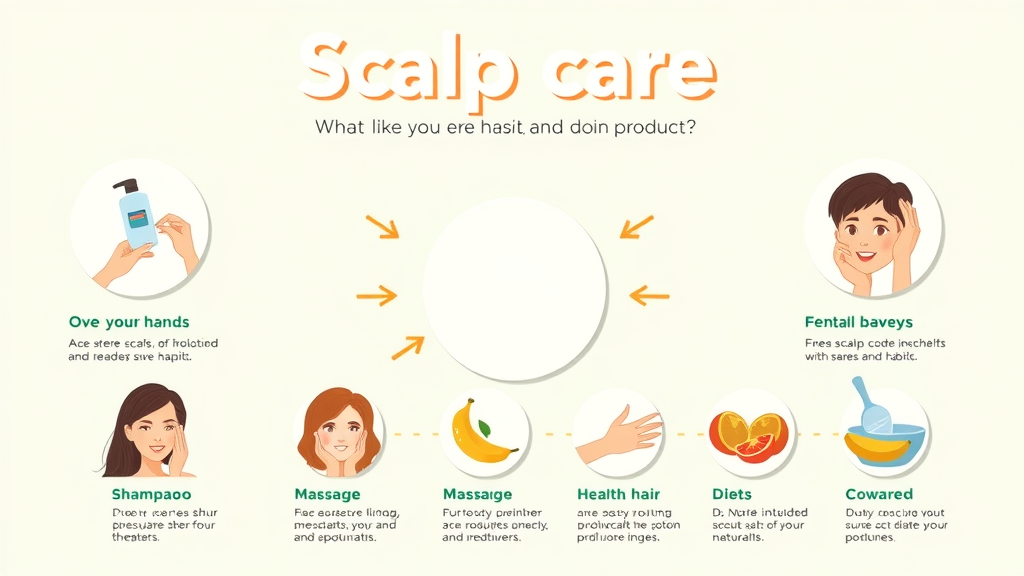
Recap: Transform Your Hair and Scalp with Proactive Scalp Health Strategies
- Prioritize scalp health to unlock natural hair growth
- Address scalp condition issues early
- Choose evidence-based care products and routines
Watch and Learn: Video Guides to Better Scalp Health
Included: Video tutorials on self-examination, scalp massages, and scalp-friendly hair care routines.
See the Change: Visual Learning for Scalp and Hair Transformation
Watch real user journeys on improving their scalp health and reversing common scalp conditions.
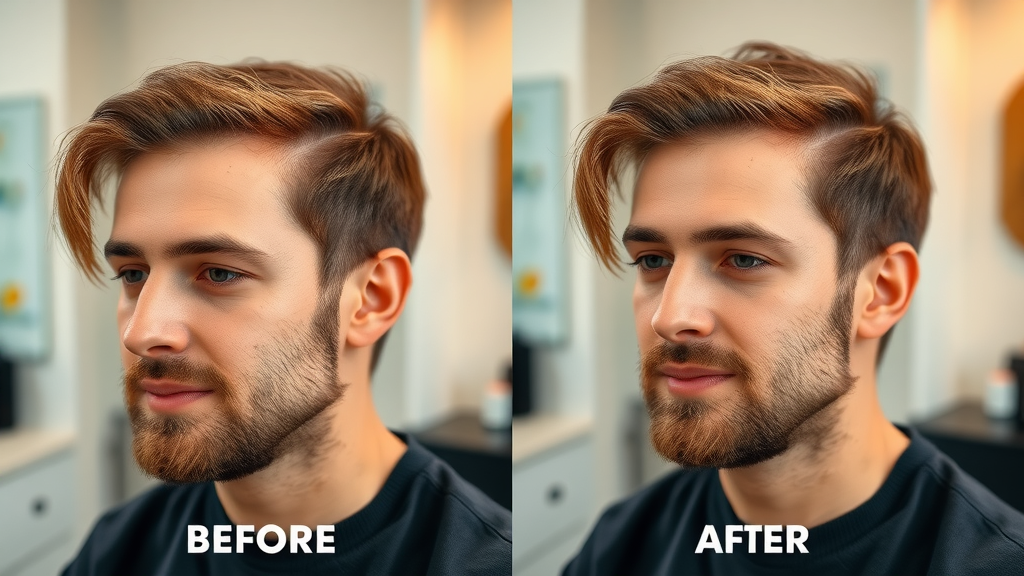
Start Your Scalp Health Journey Now
Take the first step today toward healthier hair by embracing proper scalp care practices and seeking professional help if needed.
Ready for transformative hair growth? Treat your scalp as the foundation—act now with proven routines and watch your hair thrive!
Maintaining a healthy scalp is essential for promoting strong, vibrant hair. Incorporating regular scalp massages into your routine can enhance blood circulation, delivering vital nutrients to hair follicles and supporting hair growth. ( trichology.com ) Additionally, protecting your scalp from sun damage is crucial; using dedicated scalp sunscreens or wearing hats can prevent sunburn and long-term harm. ( whowhatwear.com ) By adopting these practices, you can create an optimal environment for your hair to thrive.
 Add Row
Add Row  Add
Add 

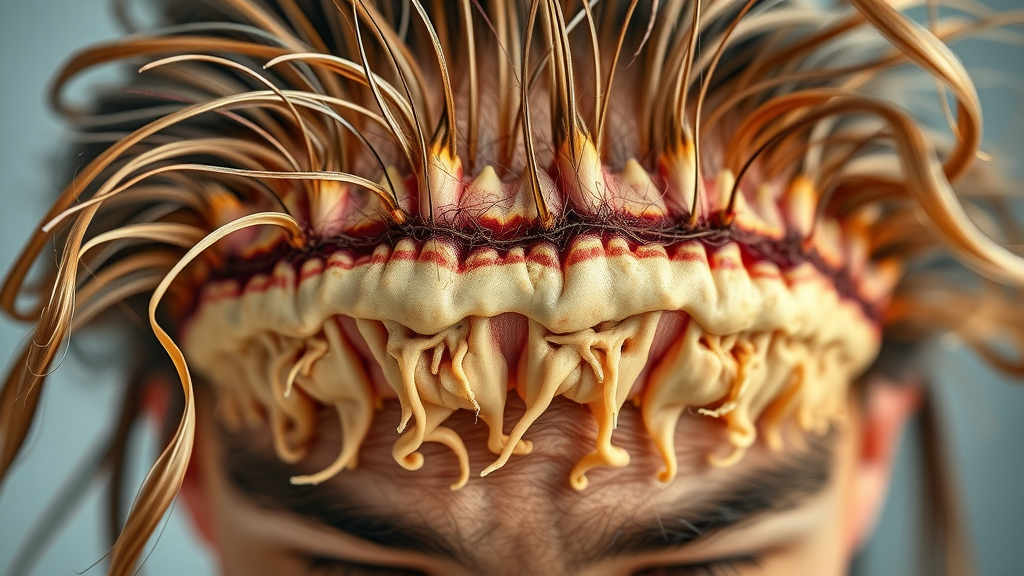


Write A Comment